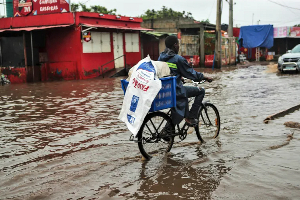Pro mental health organisations, have stepped up training efforts for general nurses and other paramedics in the Central Region, for better service delivery and to bridge the widening nurses-patients ratio facing the mental health field.
The training programme is directed at helping the health workers to detect early signs of mental illness and prescribe appropriate interventions for patients.
Ghana has 12 practising psychiatrists and three psychiatric hospitals with few options for mental patients, to receive care outside the facilities while resources reach less than 10 per cent mentally sick persons, according to mental health experts.
Executive Secretary of Mental Health Society of Ghana (MESHOG), Mr Humphrey Matey Kofie told the Ghana News Agency on the sidelines of a training programme for health workers in the Ajumako-Eyan-Essiam District that there is the need to break barriers confronting the mental health field.
The training was organised by MEHSOG in partnership with BaiscNeeds – Ghana, metropolitan, municipal and district assemblies in the region as well as the Ghana Health Service with funding support from UK’s Department for International Development.
Eighty participants who took part in the two-day training were taken through essential skills manual for health care.
It was organised on the theme: “Support the government of Ghana build a national mental health system that effectively and efficiently responds to the mental health needs of the population.”
Mr Kofie said the exercise has commenced in five districts and would be scaled up to 15 more to upgrade the knowledge of nurses in mental health service delivery to people who are in desperate need of assistance.
He said the training is expected to assist the health workers carryout their work efficiently and diffuse widespread beliefs that mental illness and epilepsy are connected to witchcraft and evil curses, which force many people to resort to traditional healers whose treatment could sometimes be brutal.
“It will improve their knowledge and understanding about what to do with patients exhibiting signs of mental illness, I must say that the training will enlighten the general health nurses to be able to detect early signs of mental illness and prescribe appropriate interventions,” he said.
He noted that deficit in the country’s psychiatric nurses might explain the proliferation of prayer camps and their apparent inhumane treatment meted out to mentally sick persons in the country.
Mr Kofie urged stakeholders to give high priority to mental health in the country in order to guarantee adequate protection of the rights and dignity of persons suffering from mental disorders.
The Ajumako District Public Health Nurse, Mrs Esther Amankwah hailed the training programme, saying that it would assist health personnel in the district to effectively deal with the overwhelming number of mental cases confronting them.
She said the district has been able to assist more than 50 patients to recover in the last few months and reunite with their communities and families.
She called on families not to lock up their relatives showing signs of mental sickness but approach the nearest health facility for help.
“Now our nurses go to the communities to offer treatment or counselling, we are also working with the prayer camps who sometimes refer some of their patients to us for medications so people should come, we are ready to give them the required treatment,” she said.
Mrs Amankwah said the health centres face shortage of medicines while nurses have logistics problems, particularly means of transport, as they trek to the hinterlands to identify patients and administer treatments.
Health News of Saturday, 15 August 2015
Source: GNA
Ajumako health professionals receive coaching
Entertainment











